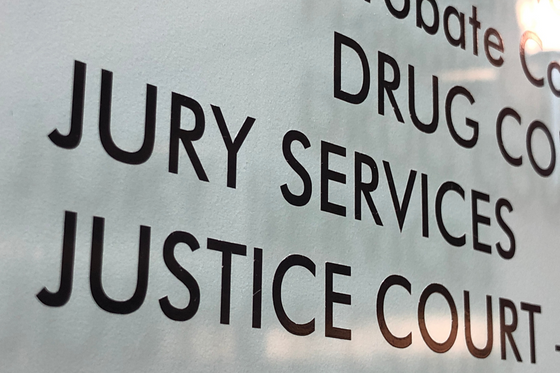
August 1, 2022
Client Prosecuted for Sexual Communications Offence Receives Rehabilitative Order instead of Imprisonment

Our client, AW, faced 15 serious allegations of sexual assault and rape from multiple complainants. Hill Twine Solicitors represented him throughout the entirely of the proceedings, from his first attendance at the police station in early 2021, to the verdict in the trial before a judge and jury at Bournemouth Crown Court at the end of 2022. AW strenuously denied all allegations. On conviction, AW would likely face up to 9 years imprisonment. We instructed two barristers, King’s Counsel and Junior Counsel in this complex case, with whom we worked closely alongside to robustly defend our client. AW was found not guilty on all counts this week after a month-long trial at Bournemouth Crown Court.
AW benefited from expert police station representation by our Toby Jackson and Niall Theobald. His account was unwavering, from the police station interviews through to giving evidence at trial. This consistency contrasted with the complainants’ accounts.
In this complex case with substantial documentation, digital downloads, and crossover between complainants, the Crown Prosecution Service instructed King’s Counsel and Junior Counsel. This enabled Hill Twine Solicitors to apply for an extension of AW’s representation order, such that he could have the same level of representation. We instructed Oba Nsugbe KC, SAN, head of Pump Court Chambers, with John Dyer as his Junior. Both Toby Jackson and Juliet Osborne attended the trial and were able to take our client’s instructions and respond to developments in the case as they arose.
Mr Nsugbe KC expertly cross-examined complainants and witnesses, drawing out and pinning down the weaknesses in their accounts.
From the opening of the trial at Bournemouth Crown Court, there were legal hurdles to overcome. The first, an application by the prosecution to add an additional offence of sexual assault to our client’s indictment. New offences usually start at the magistrates’ court. In this case, however, the prosecution argued that the Crown Court judge, HHJ Fuller KC, should use the powers granted to him under section 66 of the Courts Act 2003 to sit in the Crown Court as a District Judge (Magistrates’ Court), and send the offence to the Crown Court for trial, in the way that the magistrates’ court would usually do. Mr Nsugbe KC forcefully opposed the application, highlighting the 2021 Court of Appeal precedent R -v- Gould and others [2021] EWCA Crim 447, and relying in particular upon paragraph 92, which states:
“We consider that it is only in cases where it is quite clear that the case should be dealt with by the Crown Court, or where the exercise which is being contemplated is only designed to tie up loose ends and avoid hearings in the Magistrates’ Court which are clearly unnecessary, that the section 66 power should be used.‘
Mr Nsugbe KC argued that neither scenario applied in this case, first pointing out that the charge could be dealt with in the Magistrates’ Court, and our client should not be deprived of the right to elect that venue.
Further, he highlighted that, far from tying up loose ends, unacceptable procedural delays by the prosecution had led to their application at this late stage. It was submitted that the powers under s.66 must not be used to correct procedural failings by the prosecution.
The Learned Judge agreed with these submissions and refused the Crown’s application, criticising their failure to act in a timely manner.
The next legal matter arising was an application by the prosecution to adduce evidence of the bad character of our client. ‘Bad character’ evidence is only admissible where certain conditions, as set out in section 101 of the Criminal Justice Act 2003 are met. Without a criminal record to adduce, the prosecution sought instead to rely on our client’s own words in response to a question in his police interview about his experience as a victim of crime to show a propensity to violence. Again we opposed the application, and again the Judge agreed with our argument, stating that the evidence would be prejudicial to our client.
the jury found that the Crown had not proved its case, and AW was found not guilty on all counts
Mr Nsugbe KC expertly cross-examined complainants and witnesses, drawing out and pinning down the weaknesses in their accounts. He also dealt skilfully with the substantial volume of evidence in the case. In particular, one item of evidence disclosed by the police, a download from a messaging service, failed to provide precise dates and times for the messages. Together with our client, Hill Twine Solicitors provided the messages in a more precise format, with date and time stamps. Despite this, the Crown used the undated documents. The date and time stamped messages told a very different story, and Mr Nsugbe KC adduced this to heavily undermine one of the most serious allegations against our client.
This week, the jury found that the Crown had not proved its case, and AW was found not guilty on all counts.
This case demonstrates the hard work and dedication of our team to our clients, our ability to provide quality representation from the very start to the very end of a case, and our strong relationship with chambers, enabling us to secure counsel of the very highest calibre. We are particularly proud of Toby Jackson and Juliet Osborne as both Oba Nsugbe KC and John Dyer provided very positive feedback about the quality of their work and the level of support they provided throughout the case.
You can learn more about our Criminal Defence services by clicking here, and our specific Sexual Offence defence services by clicking here.

August 1, 2022
Client Prosecuted for Sexual Communications Offence Receives Rehabilitative Order instead of Imprisonment

November 22, 2022
Client Acquitted of Obstructing Police: Court Agrees Officer Acted Unlawfully During Stop and Search

September 14, 2022
CPS Agrees to Drop Serious Violence Prosecutions for Two Clients
If you have any questions or need advice